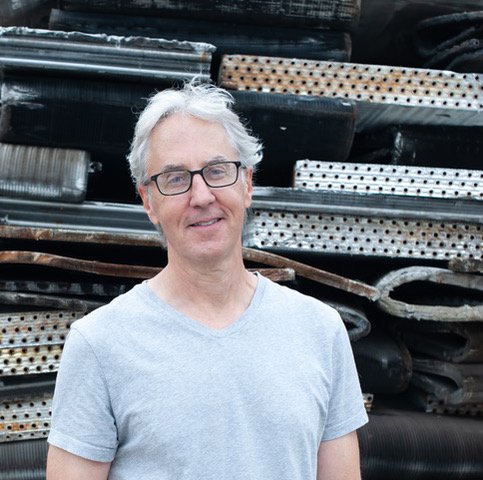“America’s Dreams” | Angus MacLachlan, A Little Prayer
Bill (David Strathairn), a Vietnam veteran who has lived in suburban Winston-Salem, North Carolina, for decades with his wife, Venida (Celia Weston), confronts the limits of patriarchal power while parenting his adult children, both of whom are experiencing personal difficulties.
Their son David (Will Pullen), is a PTSD-stricken veteran whom Bill suspects of cheating on his wife Tammy (Jane Levy). Tammy and Bill have a special bond for a father and daughter-in-law and appear to completely understand each other, so when he believes his son has strayed, he is at a loss for how to proceed. Meanwhile Patti (Anna Camp), their wilder child, unexpectedly arrives with their granddaughter Hadley (Billie Roy), having left her opioid-addicted husband Cassius for the third time.
Bill's every thought is consumed by worries about these three adult children. The heartbreak he so desperately wants to spare them from is something he struggles with, as does how to best support them in their challenges. He attempts to maintain his composure in the face of chaos and eventually discovers the limits of patriarchal interference, for better or worse.
Screening Thursday, May 8, at 7:15 p.m., at the Music Box Theatre, as the closing-night title of this year’s Chicago Critics Film Festival, with MacLachlan and Levy in attendance for a post-film Q&A, A Little Prayer is a profoundly moving and delicately crafted drama of the human heart, brought to life with passion and and grace by a gifted ensemble cast.
Ahead of the screening, MacLachlan graciously took the time to answer this year’s CCFF filmmaker questionnaire. Below, his individual responses.
How did you first become interested in filmmaking? What was your path toward directing your first film?
As a child in the ’70s, I went to every film that was released. This led me to drama school, and then I was an actor for many years. I wrote monologues for auditions, and then a play, and I would produce them locally. I became a playwright, had work done in NY, London, and Chicago; I got an agent and told them I wanted to work in film. A close friend made Junebug, based on one of my plays, and then I became a screenwriter. When I wrote Goodbye to All That, I told the producers I also wanted to direct, and they took a chance. A Little Prayer is the third film I’ve written and directed.
What inspired you to make the film you're bringing to the festival?
So many things go into a film: stories you read, events that you’ve experienced. I started the project when my daughter was 15. She’s now 23, and I realize in retrospect that I was unconsciously writing about letting her grow up and leave: the struggle of parenting adult children — that you still want to protect them and tell them what to do, and you can’t.
Tell us about a film that you consider a guiding influence (whether it has informed your overarching vision as a filmmaker, directly informed the title you're bringing to the festival, or both).
I adore Mike Leigh and there was something about Another Year that I found inspiring. His facility and love for actors, his “everyday” characters, the mixture of humor and poignancy, and I suppose the story of a long-married couple dealing with a grown son and Leslie Manville’s character who is a bit out of control.
Tell us about a location that's held significance to the film you're bringing to the festival: a setting where filming took place, a geographic area that provided a source of inspiration, or another type of space that comes to mind for you in thinking about the film. What made this place so special?
I imagined the story taking place in a specific neighborhood in my city called Konnoak Hills that was established after World War II. Very solid homes, mature trees — sort of one of America’s Dreams. When we were prepping, I drove around that neighborhood and knocked on doors to ask if we might use one of the homes. One man, who was an acquaintance, said yes. Plus — his home had a second small house in the back, and a garden shed — which I’d made up in my mind years before. It was amazingly right there. He went to the beach for three-and-a-half weeks and gave it over to us.
The theatrical experience brings us together to celebrate artistic experience and expand our horizons as human beings. Tell us about a memorable theatrical experience from your life.
When I was 12, someone programed a film series one summer at the community theatre on Sunday afternoons. They showed actual film prints of classic films and my parents took me and a friend every week. I saw Top Hat, It Happened One Night, The Thin Man, His Girl Friday, Trouble in Paradise, The Big Parade, Key Largo, Bringing Up Baby, Destry Rides Again, The Son of the Sheik, My Little Chickadee, Ninotchka, and To Be or Not to Be. When I look back, I’m astounded at my fortune to what I was exposed to—with an audience—and I’m very curious about who was the programmer.


